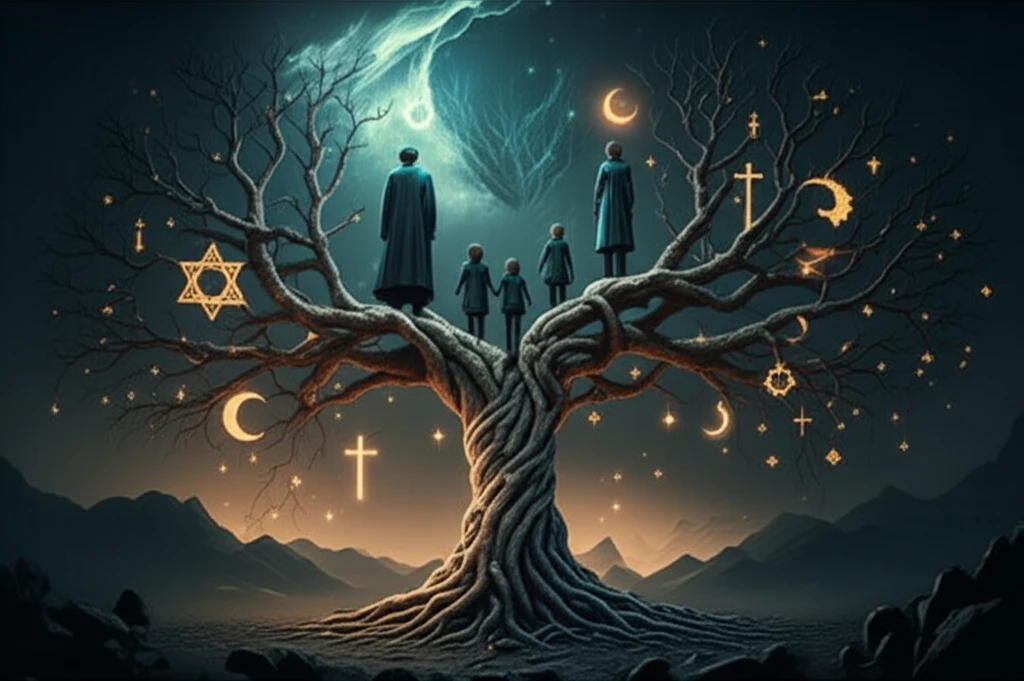
Family Secrets & Faith: How Lineage Shapes Belief in Lessing's 'Nathan the Wise'
"Uncover how bloodlines, not piety, drive the drama's exploration of religious identity and tolerance."
Gotthold Ephraim Lessing's "Nathan the Wise," a cornerstone of German literature, seemingly champions religious tolerance. Yet, a closer look reveals a surprising emphasis: the drama explores religious identity less through individual faith and more through the lens of family history. While the play features characters of Jewish, Christian, and Muslim backgrounds, their affiliations often appear secondary to their familial connections.
Traditionally, we interpret "Nathan the Wise" as a call for understanding between different faiths. However, the play subtly suggests that lineage and inherited identities play a more significant role than personal piety in shaping religious belief. This perspective challenges the conventional reading of the play, prompting a re-evaluation of its message.
This article delves into the intricate ways "Nathan the Wise" intertwines family history and religious affiliation. By examining key scenes and character dynamics, we'll uncover how Lessing uses bloodlines and inherited identities to question traditional notions of religious identity and tolerance.
Beyond Piety: The Subtly Secular World of 'Nathan the Wise'

At first glance, “Nathan the Wise” seems to promote religious tolerance. Yet, remarkably little emphasis is placed on actual religious practice. While characters are identified by their faith—Nathan the Jew, Daja the Christian—displays of devotion are scarce. Nathan's Jewishness is primarily marked by his avoidance of pork, while Daja's Christianity is only mentioned when she visits a Christian temple. This absence of religious fervor is striking, given the play's central theme.
- Limited Religious Practice: Characters rarely engage in public displays of their faith.
- Emphasis on Actions: Ethical behavior and relationships overshadow religious rituals.
- Shared Humanity: The play emphasizes common human experiences over religious differences.
The Enduring Power of Lineage
In conclusion, "Nathan the Wise" presents a complex view of religious identity. While seemingly advocating for tolerance, the play subtly suggests that family history and lineage hold more sway than individual piety. By de-emphasizing religious practice and highlighting familial connections, Lessing challenges traditional notions of faith and identity, prompting a re-evaluation of the play's message.
